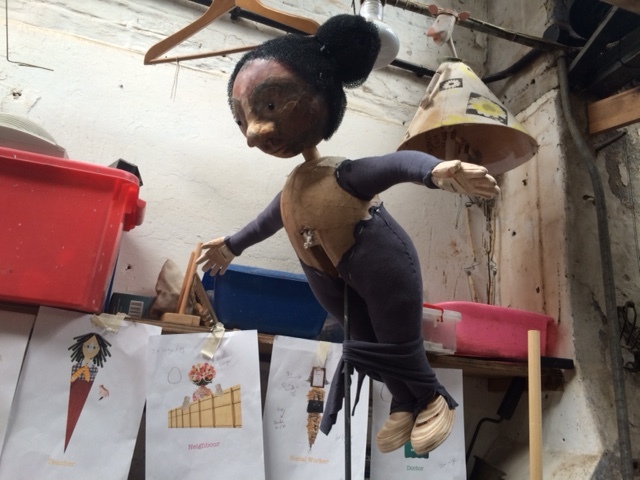
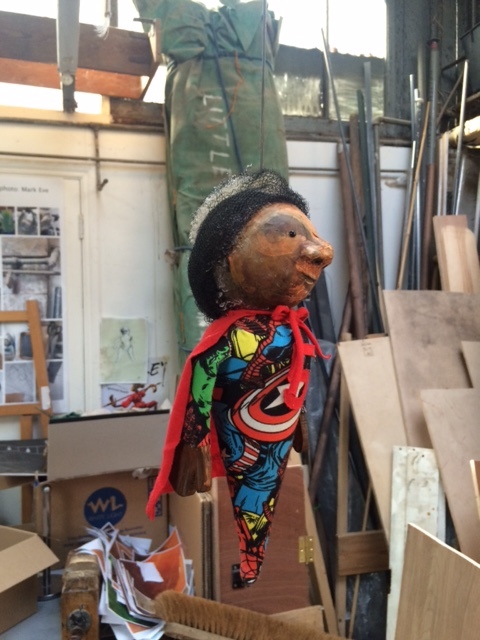
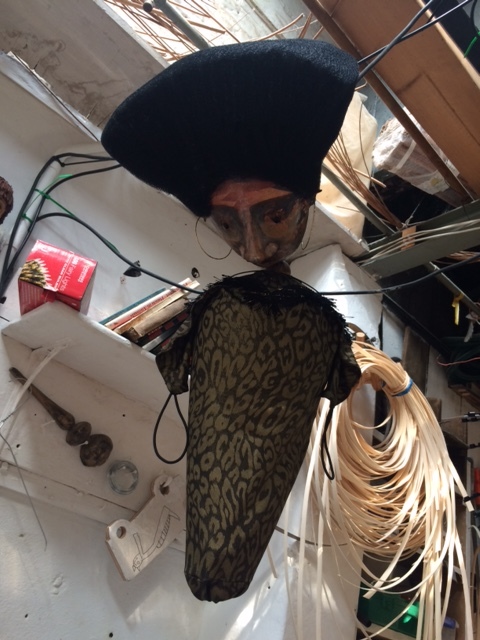


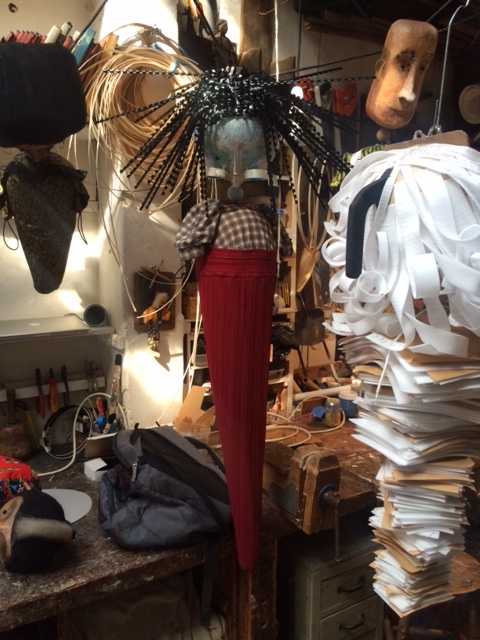
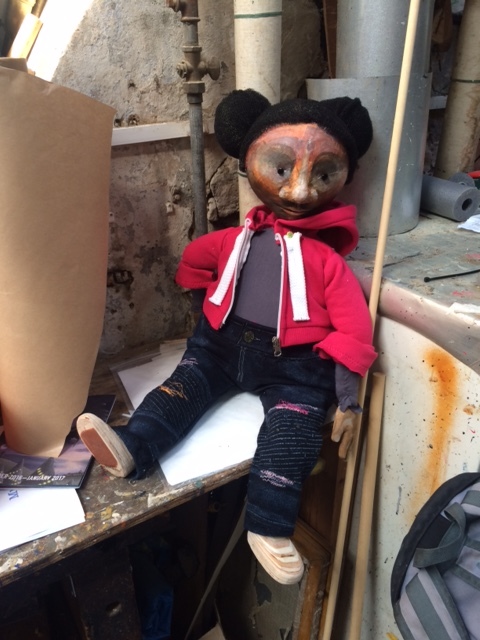
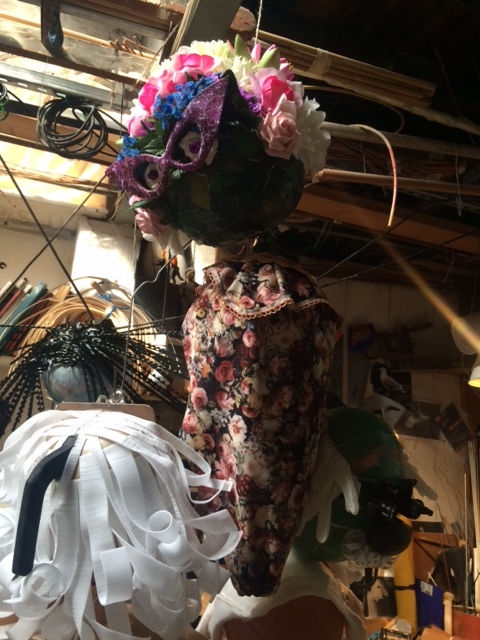
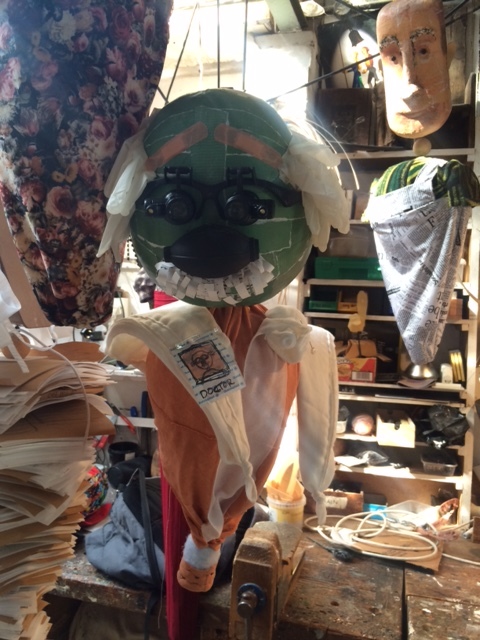

My play, Emily Rising, is in production. They've been building the puppets for the show in the extraordinary workshop at the Little Angel Theatre and you can see some of the images here. You can see Emily herself in various versions but also her mum and dad and her brother, Robbie. You can see her teacher, a social worker, and a nosey neighbour.
I've also finished the stage adaptation. We had a very interesting R&D workshop at the theatre at the end of June, working with the director, Oliver James Hymans, members of the production team, and David Duffy the production manager at the theatre and a writer for puppets himself. The principle is that writing for puppets needs to externalise as much as possible (Hamlet-type introspection is less effective than something physicalised and made visual. This doesn't mean you can't be psychological, but you need to throw shapes and strike attitudes. In some ways, each scene needs to have a tableau level at which is can be understood - two people fighting, or kissing, or one person walking out on another, these things work very well and the dialogue just sits on top of that, refining, making more precise.
The original script for Emily Rising had a few bits where clearly I was enjoying writing contemporary dialogue and there are some self-conscious moments. I've tried to eliminate those in favour of clarity and vividness. The social worker, for example, now has, basically, a sort of catch phrase; the helicopter pilot is more of a comic figure and so on.
It might seem that moving a play from radio to puppet theatre is to move from one end of the dramatic spectrum to another: from an entirely un-visual dramatic form to an almost entirely visual form. But in fact, it doesn't feel like that. There are some things I've been able to do on stage that I couldn't do on the radio (double takes, having Emily learn to fly, etc.) but equally there were some things that I knew wouldn't work on stage. But mostly, I think both are forms in which what you are trying to do is offer prompts for the audience's imagination. The puppets are never going to look realistic, nor would you want them to be. Instead you want them to be evocative and make a young imagination soar for a bit. Same with the script: you want to give them just enough to be tickled by the story and imagine what it would be like to experience it for real.
The show opens on 10 September and runs until 20 November. Tickets available 020 7226 1787 and www.littleangeltheatre.com.


![photo[1].jpg](https://images.squarespace-cdn.com/content/v1/513c543ce4b0abff73bc0a82/1362919072201-PZO854G4SEB794DVOEI8/photo%5B1%5D.jpg)
